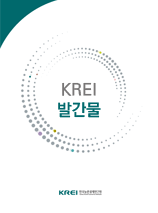


This paper is to investigate the current development status of the agro-industry sector and agro-enterprise clusters in five selected transition economies including Kazakhstan, the Kyrgyz Republic, Mongolia, Tajikistan and Uzbekistan, and to provide policy guidelines for the effective attraction of ...
This paper is to investigate the current development status of the agro-industry sector and agro-enterprise clusters in five selected transition economies including Kazakhstan, the Kyrgyz Republic, Mongolia, Tajikistan and Uzbekistan, and to provide policy guidelines for the effective attraction of investment in the sector. After the disintegration of the Soviet Union, the countries had been converted into small, segmented market economies with limited growth potentials. They are suffering from relatively high unemployment rates, while agriculture is the industry which provides the largest employment opportunities and takes a considerable share of GDP. However, the missing of market signals has resulted in the inefficiency in the agricultural marketing and processing industry. During the economic transition, the lack of investments and serious budget constraints has negatively affected the development of agriculture and agro-industry. Although each country has adopted diverse efforts to introduce foreign investments, unsatisfactory institutional settings, the prevalence of bureaucratic corruptions, and so forth have hindered the inflow of foreign capital. Cluster-based economic development is recommended to the countries in that it will increase agricultural productivity and bring rural development.
Clusters encompass an array of linked industries and other entities, for example, suppliers of specialized inputs such as components, machinery, and services, providers of specialized infrastructure as well as agricultural producers. The agro-industry cluster development in transition economies, if successfully implemented, will bring poverty reduction, increased job opportunities particularly for women, and improved balance of trade.
However, the existing environment for the development of agro-industry cluster is not favorable to the countries. The basic requirements of agro-industry cluster development are as follows: the establishment of legal and regulatory frameworks; private sector development; the construction of close relationships among participants of cluster; development of technologies in every value chain such as production, processing, storage, marketing and so on; and extensive financial support and investment promotion for the related industry development by constructing a banking system, and necessary infrastructure.
KREI의 출판물은 판매 대행사 (정부간행물판매센터)와 아래 서점에서 구입 하실 수 있습니다.
| 교보문고 | http://www.kyobobook.co.kr/ |
|---|---|
| 영풍문고 | http://www.ypbooks.co.kr/ |
| 알라딘 | http://www.aladin.co.kr/ |
| 상세정보 조회 | 좋아요 | 다운로드 | 스크랩 | SNS공유 |
|---|---|---|---|---|
| 14643 | 0 | 13 | 0 | 0 |